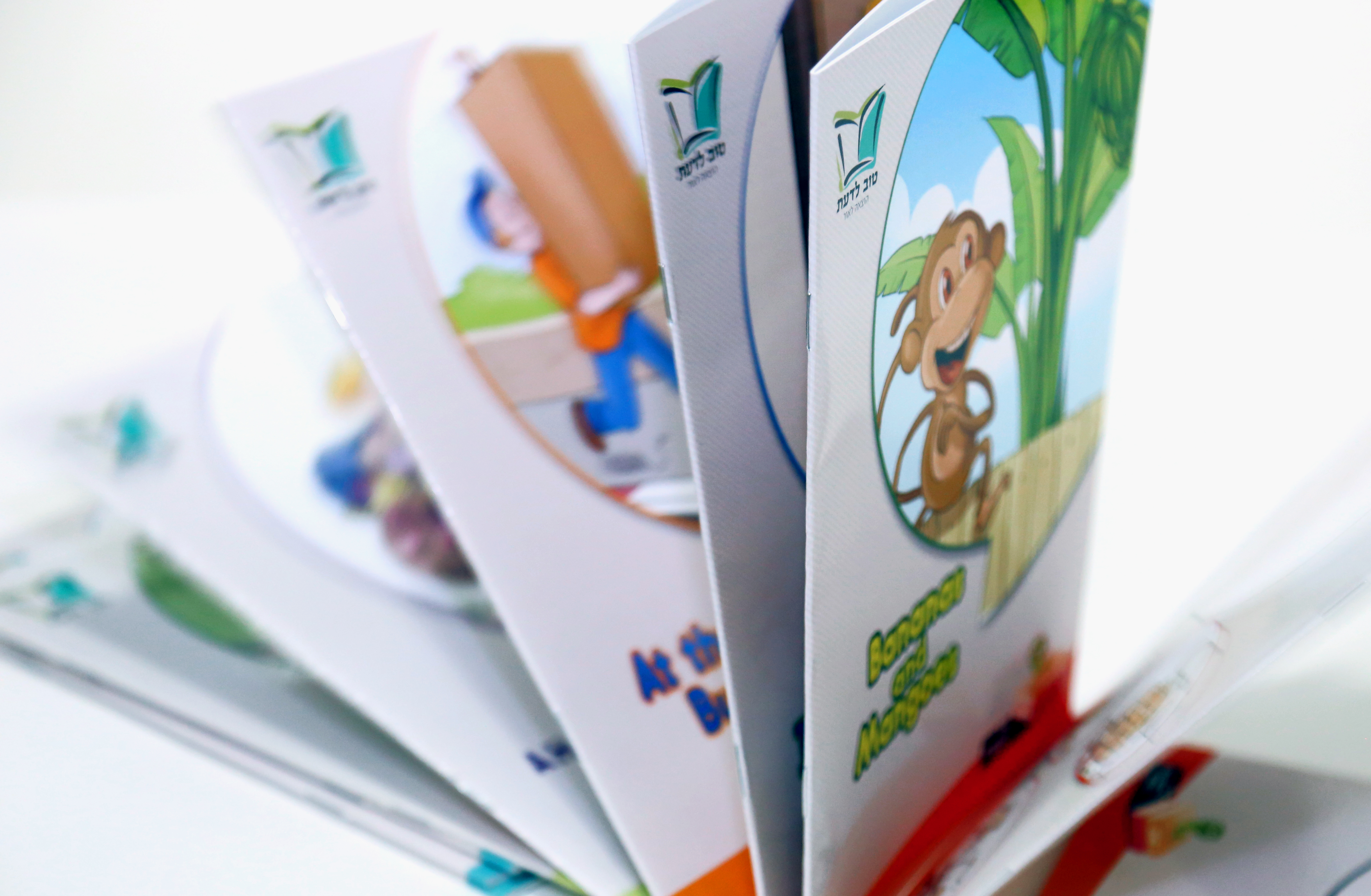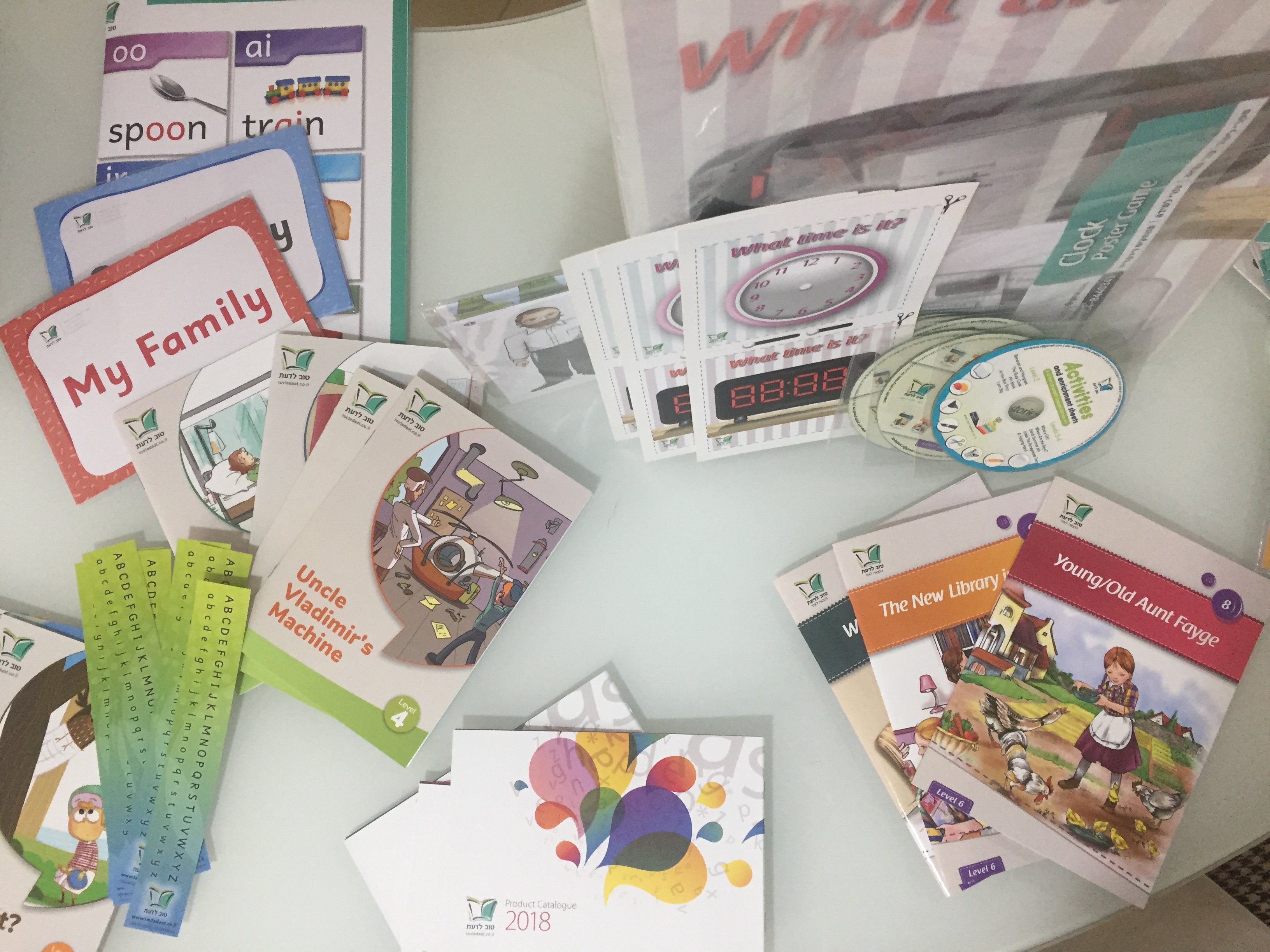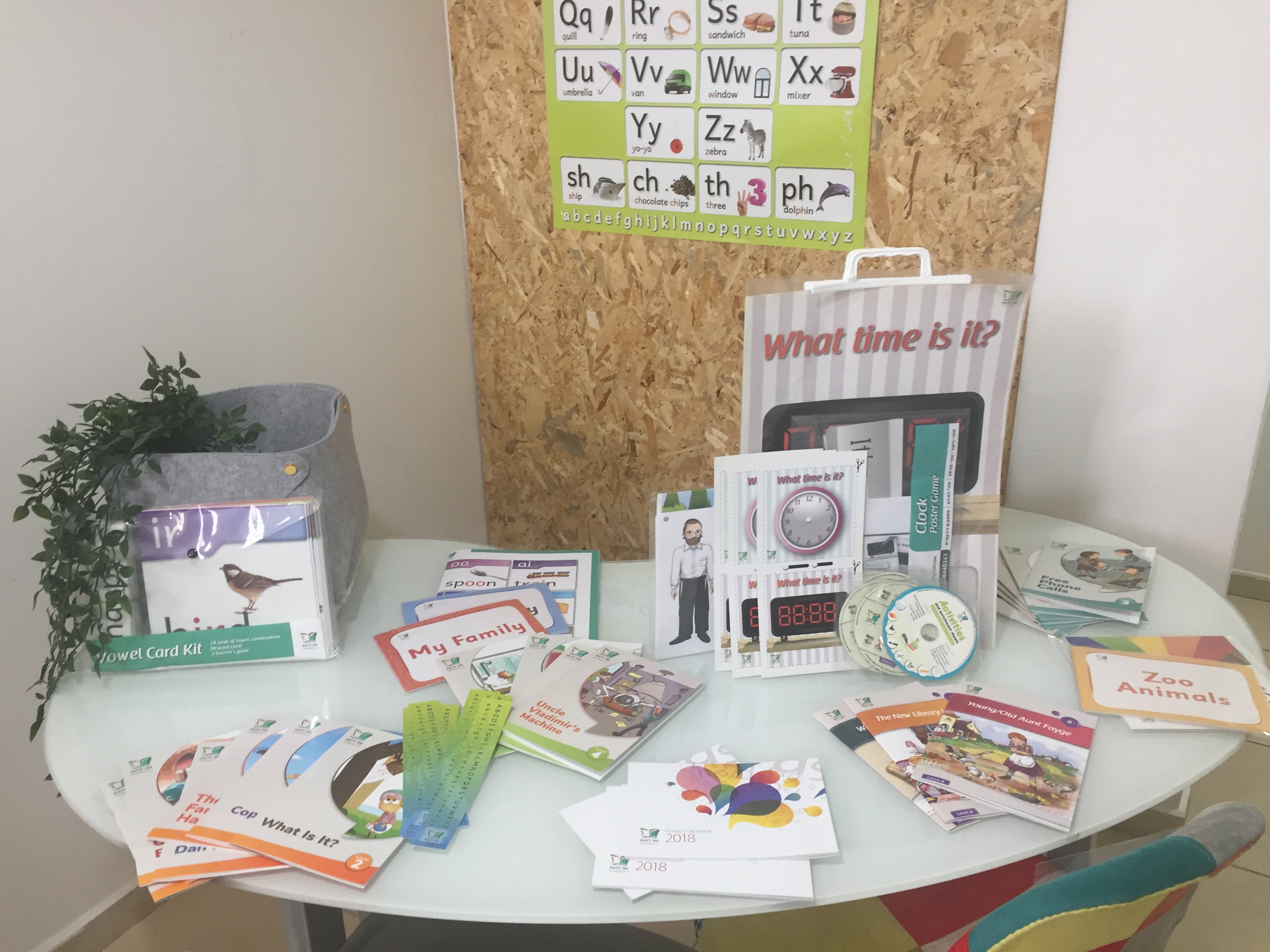"We Thought: Why Should Kids Be Exposed to Problematic Content Just to Learn English?"
Miri Khori and Yasmin Boukayi decided to revolutionize English education by making it more suitable for the Haredi community and more engaging. They discuss their joint project, 'Good to Know', which they manage together, and their longstanding friendship that started in high school.

Which of us Israelis does not want their child to acquire and master the English language? Today, English is definitely not a luxury. It's a language that opens doors not only abroad but also in Israel.
One of the factors preventing our children from acquiring the language is that it is not always taught in a manner they find enjoyable in school. Sometimes the lessons are difficult and cumbersome, the exams frustrating, the dictations exhausting, and the demands high. Is it any wonder it's hard to find children who love learning English?
This 'English = difficulty' equation is something two women decided they wanted to change from the ground up. About seven years ago, Miri Khori and Yasmin Boukayi began leading a unique initiative with a project called 'Good to Know', aimed at teaching English. The project offers tools to illustrate the language, games, and also reading booklets.
Interestingly, the partnership between the two is not new at all; it began while they were still young.
"We first met in eleventh grade," Miri recounts, "and we have been very good friends ever since. We continued together later at the Ofakim seminar. Yasmin studied design and English, I studied mathematics teaching and design, and already back then, we had our first collaboration. It was when Yasmin needed to submit a final project—an English booklet. She wrote it, and I illustrated it for her. I don't remember what the booklet was about, but I remember we were very pleased with it".
Yasmin: "I actually still have it stored away".
Both emphasize that for them, it is a great privilege to work together on something they so strongly believe in.
"It's a great joy to do something you love, together with a partner who is also a close friend of yours," Miri clarifies.

For the Sake of English
How did you come up with the idea of illustrating English?
"It started out of need," Yasmin explains. "I was an English teacher in the south and constantly encountered a lack of materials. There were textbooks, but they weren't 'ours', and the girls studying at Beit Yaakov had to read content that was not quite suitable for them. I always asked myself: 'Why is it allowed in English what's forbidden in Hebrew?' Meanwhile, I got to know other English teachers from all over the country and realized the absence I felt existed with them as well. On the other hand, there are teachers who managed to develop materials and methods on their own and wanted to spread them without knowing how".
Yasmin also mentions, for those who don't know, that being an English teacher is one of the most challenging teaching professions. "An English teacher regularly faces difficulties and barriers and furthermore, she needs to be constantly creative, almost like a graphic designer—creating illustrative tools and games, and all sorts of flashcards and repetitive items. English teachers usually work with many classes, have numerous tests and quizzes to grade, and are constantly monitored for their achievements. How will they find the time to cut and draw and create visual aids for the girls in all this?" she asks.
Into this space, Yasmin says they entered when they began producing various tools, like posters used as decorations for English classrooms, wall decorations, and various illustrative tools, according to the categories of new words being learned in English.
But that's not all, because the two are also working on developing a series of booklets.

Yasmin: "The booklets are an old dream of mine. As a student, I was a bookworm, and when I finished reading the lower-level English booklets, I asked to receive books at a higher level, but then the teacher stopped me and said she didn't have suitable booklets because such booklets with messages appropriate for the religious and Haredi world simply did not exist. After I became a teacher myself, a teacher working at an Ulpana spoke to me and said very similar things. She told me with great pain about how she was forced to bring her students very difficult-to-digest stories with problematic content. She had to erase and tear out pages, and try to retroactively fit the booklets. I myself looked for booklets that could suit my students, but the Haredi booklets that came out were generally dull, in black and white, boring, and did not really stimulate motivation to read.
"These exact things led me to start writing such booklets myself. As a teacher, I can say unequivocally—there is no chance to teach a child the English language if you don't let him read. And the goal is not just to read, and not just for the content to be kosher, but for it to also be age-appropriate.
"Over the years," she adds, "I discovered something interesting—as a child struggles more with English and is weaker in the subject, it becomes harder for him to accept being given English books originally suitable for younger children. An 8th-grade student learning in a lower track and receiving a booklet that, in terms of storyline, suits third grade, feels insulted and refuses to read. The aim should be to produce booklets with content suitable for the age, even though, language-wise, they will be at a lower level. That was our major challenge".
And Miri adds: "Personally, it was important to me all along to also include content of values. So that the students not only learn English but also acquire values along the way. This led us to stories like one about a girl in a wheelchair given the chance to dance and sing on stage, another story about a boy with a severe peanut allergy, and so we made efforts to ensure all the books contained quality content with interesting and strengthening added values".
Incidentally, they also note that, unlike teachers who emphasize that every story should be well taught and the students should be able to recite it by heart, they think it's better to reach a state where a 'quantity' of books is read, putting less emphasis on depth within each book. "In this way, the English language becomes more pleasant, you learn to chat with it, enjoy it, just like when you enjoy reading comics. Our goal is to make reading something light and fluent, something that doesn't require a special effort to succeed at".
Do you ever have disagreements?
Miri: "Of course, there are disagreements, but it does not harm our friendship. We try to learn from one another, to gain wisdom, and yes, sometimes we also argue a bit. I believe it's a privilege not to be taken for granted—to be a partner with your best friend".
Yasmin: "Since we've been together for so many years, we don't need to talk at length about everything. It's enough to say a few words, and each of us already knows what the other thinks and feels. And the fact that our opinions sometimes differ? I see no issue with it. You always need two views, and that only helps to enhance things".

Not Just for the Haredi
Their greatest satisfaction comes from discovering in recent years that even non-religious sectors are interested in their materials.
"It's amazing, because they already have their materials, but secular schools and general libraries keep coming to us, saying they enjoy seeing high-quality material, and it doesn't bother them for a moment that the creators are Haredi and that the characters in the books are adapted for the Haredi sector," says Yasmin.
"Once a teacher from a kibbutz contacted us," Miri recalls. "I asked her about the nature of the kibbutz, and she replied, 'Look, we eat pork here...' but eventually, she came back and bought an additional amount of books. I asked her with curiosity if it didn't bother her that the children have kippot and tzitzit, and she replied that it didn’t. She saw no problem with it. Another teacher told me, 'Why not? Let it be some sort of affirmative action. After all, in secular books, a religious child is never shown, so now here's an opportunity...'
Over the years, I recall only one school, out of hundreds, that returned the materials after claiming they did not fit the style of their students. Again and again, we are moved to see how we inadvertently aimed there, but we also merited to sanctify Hashem's name through our materials, and it's an immense satisfaction."
To purchase at Hidabroot Shops, click here.

